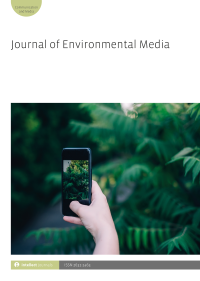
Full text loading...
 , Lee Grieveson2
, Lee Grieveson2
This short essay is a polemical exploration of recent scholarship on media and resource extraction, with remarks on the necessary revisions this work entails to the purview and practice of studying cinema and media. Drawing on emergent works that elucidate the significance of media’s embeddedness in extractivist logics, we reflect on the ideas that propel them and the future conversations we hope they will provoke. As old disciplinary configurations no longer fit the task of understanding the technological instrumentalization of life in the face of climate breakdown, we consider the ways in which reckoning with modernity’s dependence on extractive industries and modes of labour reformulate media histories, the disciplinary study of media objects, our horizons of thought and our ways of being.

Article metrics loading...

Full text loading...
References


Publication Date:
https://doi.org/10.1386/jem_00085_1 Published content will be available immediately after check-out or when it is released in case of a pre-order. Please make sure to be logged in to see all available purchase options.